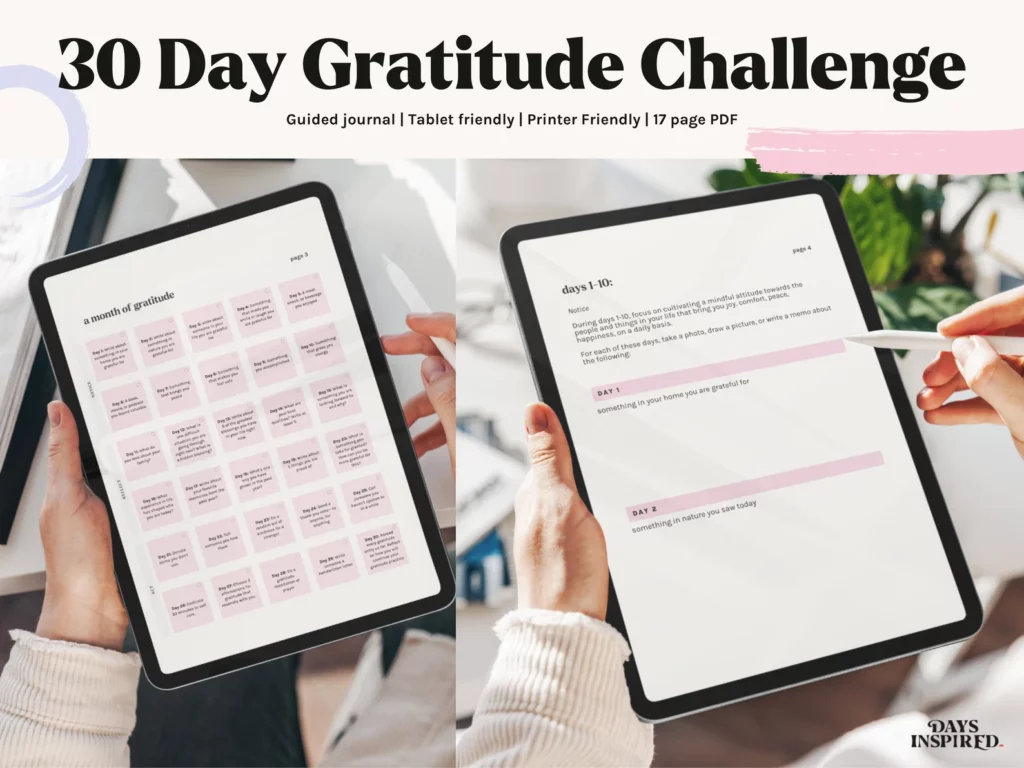Practicing gratitude on a daily basis will change your life. Yes, you read that right. And no, I’m not exaggerating.
Gratitude has well researched benefits to not just mental health, but physical health as well.
Not to mention, practicing gratitude is free, and takes only a small amount of time each day. It’s a no brainer!
Mental health research has narrowed in on gratitude as one of the most promising practices for changing your life.
In this article, I’ll cover 15 amazing benefits of gratitude that are backed by research.
First, let’s start with the basics.
What is Gratitude?
Gratitude is the feeling of appreciation for the people and things in your life. As a practice, it is consciously bringing up these feelings on a daily basis.
Practicing gratitude does not necessarily mean taking any actions. While it’s good to express gratitude to those around you, gratitude can also be a deeply personal practice.
What’s important is that it begins with a feeling of deep appreciation and positivity.
How to Practice Gratitude
To begin practicing gratitude, all of the work can be done in your head. Simply take time at the beginning and end of the day to think of something you are grateful for.
To take your practice further, try writing these things in a journal, or meditating on them.
15 Research-Backed Benefits of Gratitude
Now that we’ve covered the basics, let’s get to the benefits on why you should absolutely start practicing gratitude today.
1. Gratitude Builds Self Confidence
Almost everyone struggles with self confidence sometimes. It’s a normal part of life. But did you know that just by practicing gratitude, you can increase your self esteem and confidence?
Research shows that people who regularly practice gratitude report higher levels of self esteem. It makes sense. When we recognize and appreciate the goodness of others, it becomes easer to see in ourselves as well.
In doing so, grateful people also compare themselves to others less. This is so important in the social media era we currently live in.
2. Gratitude Increases Positive Thoughts
One of the most well-documented benefits of gratitude is the fact that it simply makes us happier. In 2005, researchers demonstrated that just by journaling for 5 minutes a day about what you’re grateful for can increase long term happiness by over 10%.
So, practicing gratitude doesn’t just momentarily feel good. It actually creates lasting and measurable change in happiness levels.
And gratitude will meet you wherever you are. A 2012 study showed that those who practiced gratitude exhibited fewer depressive symptoms, like a feeling of hopelessness and poor sleep quality.
3. Gratitude Improves Relationships & Friendships
The benefits of gratitude won’t just help you, but also the people around you. Gratitude has benefits for both friendships and romantic relationships.
Couples that practice gratitude towards one another not only feel better about their relationship, but are more comfortable expressing concerns to one another as well.
And the same goes for friendships. Gratitude can help us at each stage of friendship, from making new friends, to feeling closer to the friends we do have.
4. Gratitude Increases Spiritualism
Gratitude and spirituality are highly correlated. Meaning, spiritual people are often also grateful people.
Many who seek personal growth find themselves in a spiritual journey. Whether that be religious or not, evidence suggests that practicing gratitude may help in your spiritual journey.
5. Gratitude Increases Optimism
Practicing gratitude is strongly correlated with optimism. Gratitude is appreciation for what you currently have. Optimism is hope that more positive things will come in the future.
This means that the more we are able to see the positive in our current lives, the more we believe that there are more good things coming.
Over the years, the effects of this can be immense.
6. Gratitude Increases Generosity
Recent research shows that Gratitude and generosity are linked neurologically.
As it turns out, practicing gratitude cause changes in brain chemistry that makes people more generous. People who practiced gratitude were much more interested in giving than receiving.
7. Gratitude Makes you Less Materialistic
In today’s hyper-materialistic world, it’s easy to get trapped in the cycle of always wanting more. And this materialism is strongly associated with decreased well being.
So what can we do about it? Gratitude, of course.
Practicing gratitude makes people less materialistic. By focusing on what you do have, you’re less likely to feel intense pressure to always have more.
8. Gratitude Improves Decision Making
Decision making is a key part of our daily lives— what to wear, what to eat, where to go, etc. And sometimes, decisions can be much more difficult.
One of the more surprising benefits of gratitude is that it can improve decision making skills.
In one study, subjects who were grateful demonstrated more restraint and patience, which ultimately made them better decision makers.
And while no one knows quite why gratitude improves patience, the evidence is promising.
9. Gratitude Reduces Stress
Everyone copes with stress in different ways— exercise, eating well, meditating, etc.
Surprisingly, or not, gratitude can also help. Research shows that gratitude can actually reduce your stress hormones.
This is true in a variety of circumstances— included job related stress, family occurrences, and more.
10. Gratitude Reduces Blood Pressure
Yes, you read that right! This health benefit of gratitude seems almost too good to be true. But researchers demonstrated that “grateful people have 16 percent lower diastolic blood pressure and 10 percent lower systolic blood pressure compared to those less grateful.”
Not to mention, they were also found to have healthier habits in general including exercise and healthier dietary habits.
11. Gratitude Improves Sleep
For some, a good night’s sleep comes easy. For others, not so much. And there’s nothing worse than waking up still tired.
In one study, it was shown that just thinking about things subjects were grateful for before bed led to falling asleep faster and staying asleep longer.
Grateful people got up to a half an hour more sleep per night. So set aside the melatonin, and try out gratitude to improve your sleep.
12. Gratitude Enhances Empathy
Empathy is the ability to understand and see things from the perspective of another. Empathy is critical in building social relationships with others. This is true whether personally, in the workplace, or at school.
In one study, grateful people were more able to see things from another’s point of view. Not only this, but they “were more likely to report having helped someone with a personal problem or having offered emotional support to another.”
And if you start practicing gratitude, you’re not the only one that will see these benefits. Grateful people were rated as more generous and helpful by the people around them.
13. Gratitude Fosters Resilience
In the book Grit, Angela Duckworth argues that the secret to success lies in passion and resilience.
What is resilience? According to The American Psychological Association, It’s the “process of adapting well in the face of adversity, trauma, tragedy, threats, or significant sources of stress.”
So what’s the connection between resilience and gratitude?
Without gratitude, it’s easy to give up. When we cannot see the positive, we may struggle to find reasons to push forward.
By practicing gratitude each day, we give ourselves a reason to continue on, and thus become more resilient.
14. Gratitude Increases Productivity
Gratitude is an unsuspecting productivity tool.
In one study, researchers found that managers who expressed gratitude to their team has employees who were 50% more productive.
If you’re not lucky enough to have an appreciative boss, you can still use gratitude to boost your productivity. By practicing gratitude at work or school, you’re more likely to feel satisfied with your daily achievements. This leads to increased self-esteem and productivity.
15. Gratitude Improves Wellbeing During Stressful events
We all know by now that the pandemic was extremely stressful for people of all walks of life. Could gratitude enable people to handle the events of the pandemic better?
In one study, participants who practiced gratitude rated themselves at lower levels of stress related to the pandemic.
This research is promising. The pandemic certainly won’t be the last stressful event we go through, so gratitude can be kept in our toolkit for more to come.
Shop this post

30 Day Guided Gratitude Challenge
Final Thoughts
Gratitude is such an amazing tool. Honestly, I’m feeling gratitude for all of the research that’s been done to discover that!
I encourage you to take a moment and make a plan for how you will incorporate gratitude into your own life.
When will you practice gratitude? Will you journal, meditate, or something else?
Better yet, start right now, by thinking of 5 things that you are grateful for in this current moment.


